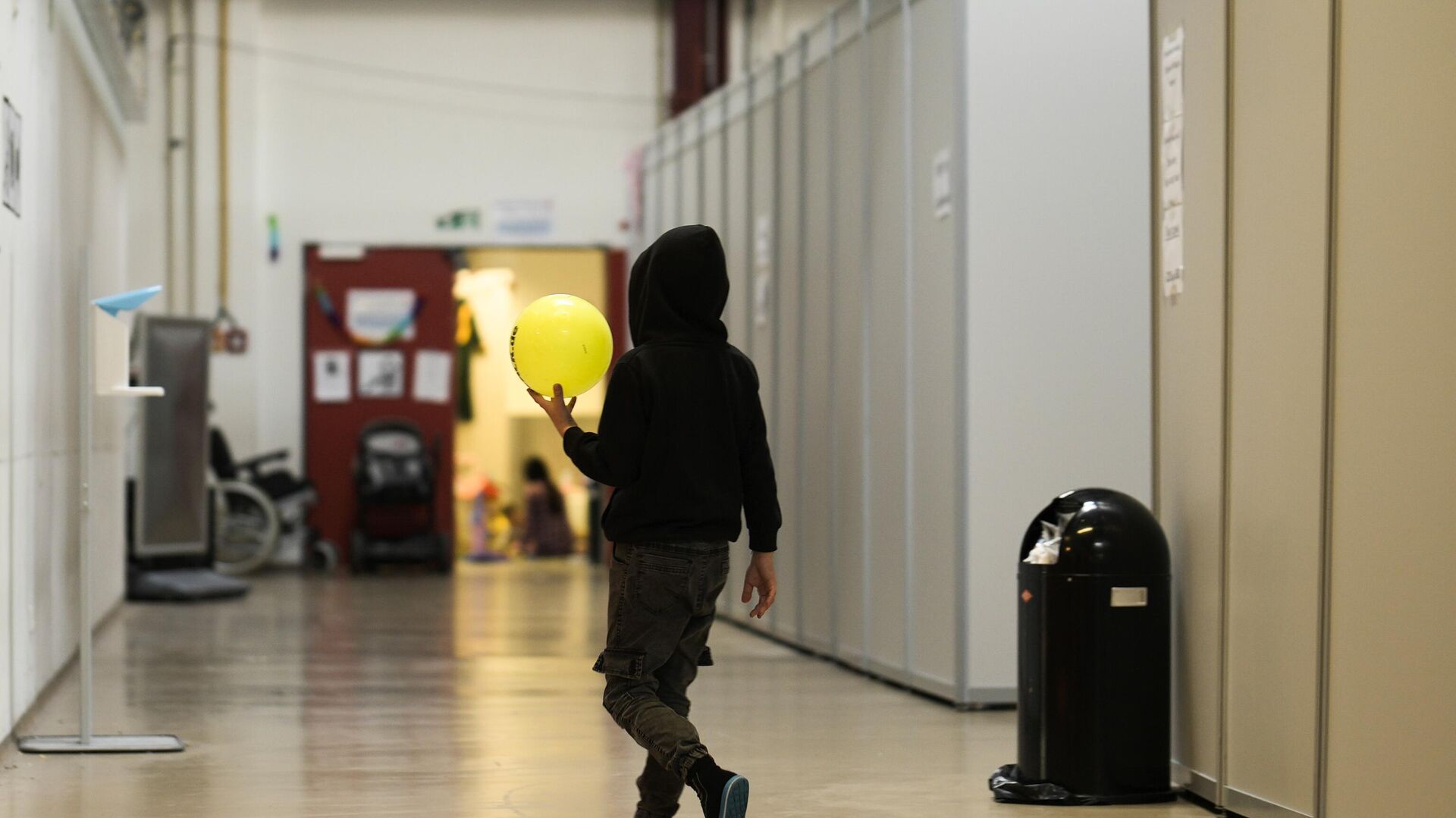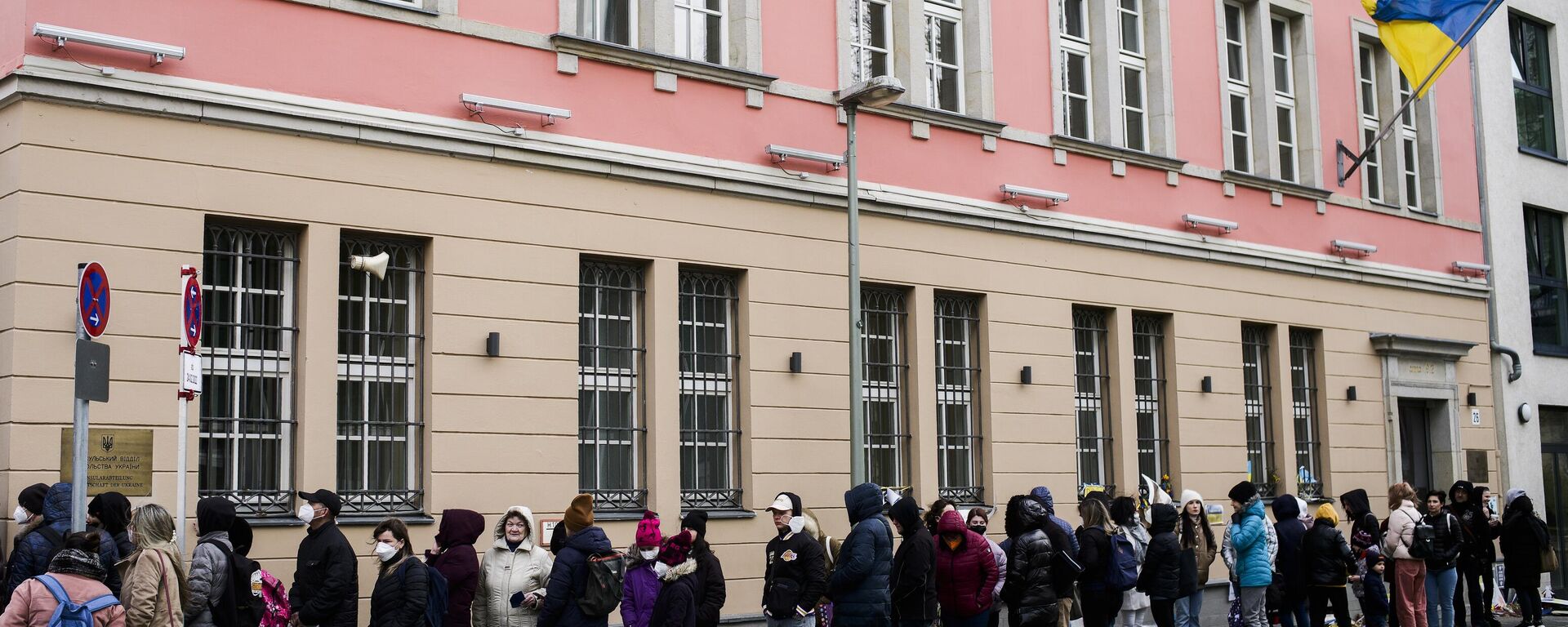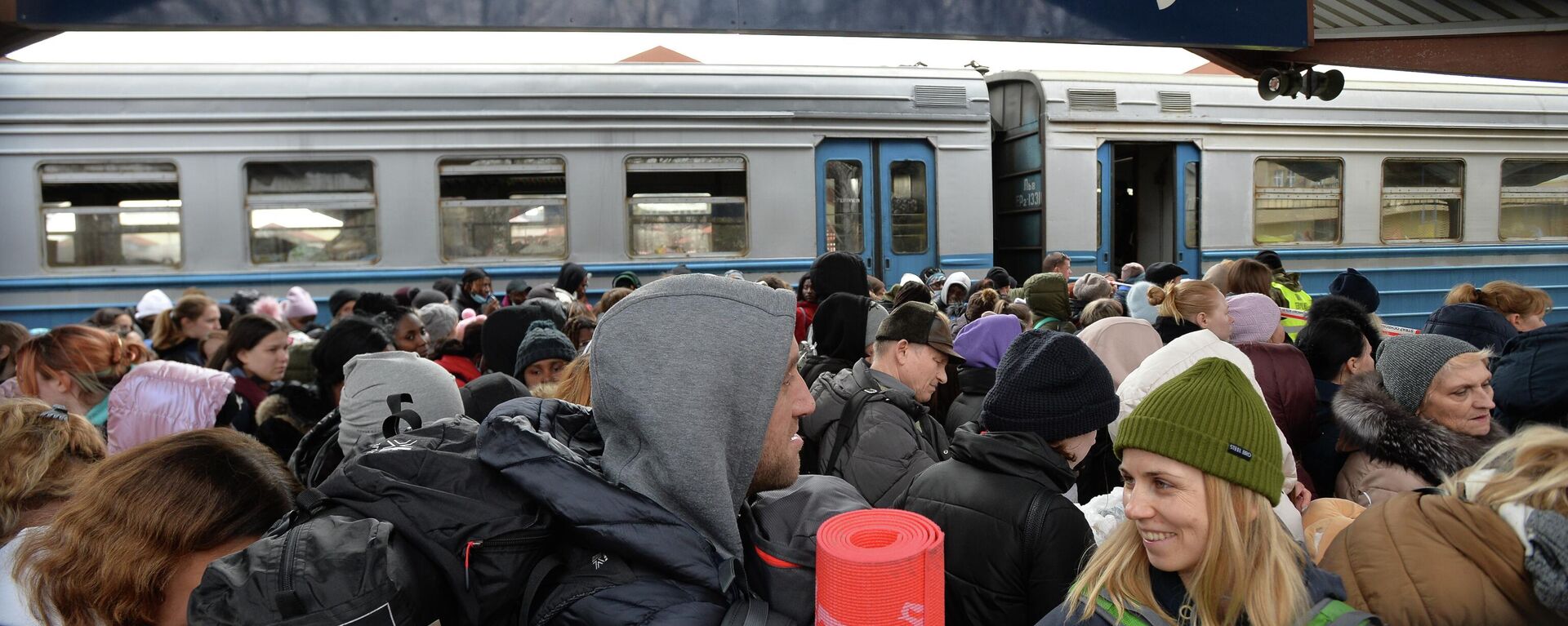Ukrainian Child Snatching Drama: EU Faces ‘Social Explosion’ Triggered by Refugee Crisis

© AP Photo / Markus Schreiber
Subscribe
Over four million Ukrainians are presently living in EU countries, with Germany and Poland accounting for about half of the total. Asked to comment on the scandal involving European social services’ snatching of Ukrainian refugees’ children, journalist Alexander Sosnowski said the issue is only a small microcosm of a much bigger social problem.
Hundreds of Ukrainian women living as refugees in EU countries have had their children taken away from them by social services over the past year, with some recounting horror stories of authorities splitting families for transgressions by parents as mild as keeping kids home from school for extended periods without a good excuse, or unsubstantiated suspicions of abuse.
Earlier this year, Ukraine’s Human Rights Commissioner reported that at least 240 children had been removed from the custody of their parents or guardians in EU countries and placed in the hands of the state. Affected women have complained that appeals for help from the Ukrainian Embassy and public organizations have often done little good in getting their children back, and cited German authorities as being among the strictest and most inflexible.
Alexander Sosnowski, a Germany expert, author and chief editor of the ‘World Economy’ online magazine, told Sputnik that while the problem of social services unjustly breaking up families certainly exists, it’s not something worth blowing out of proportion.
“According to German statistics for 2022…in all there were 40,000-odd such cases [of temporary removals of children from families, ed.], among which, more than 90 percent were returned to their families within three weeks, and the rest placed in the hands of appropriate organizations, which would care for these children until their future fate could be determined,” Sosnowski said.
“As for Ukrainian refugees specifically, I can simply say that I have not come across reliable facts about this happening on a widespread basis. There were several instances of the German press writing about this problem, but not in the sense that one could say that children are being taken away from Ukrainian refugees. Quite the contrary: the German state has done everything possible to provide refugees with better financial and material conditions than even its own recipients of social assistance get. This, by the way, very often causes complaints from locals – from citizens saying that ‘refugees come and get more than we do.’ That’s the situation,” the observer said.
Part of the problem, according to Sosnowski, is that due to the laxity of German monitoring of refugees (Ukrainian or otherwise), no one really knows just how many of them are really living in Germany and planning to live and work for the benefit of the country, and how many are there to collect social assistance and leave. “This is something the Austrian and German press has written about several times,” he said.
“If a family of three arrives, they’ll receive approximately 1,500 euros in social assistance, plus paid accommodation, free medicine, fare for public transport and other little things. That is, if a family of three costs the state approximately 30,000-35,000 euros a year, more than half of that remains with the family in the form of cash. Is this enough to save up and return something to Ukraine? I don’t know. It depends on each specific family. But this is very decent money,” the observer stressed.
On top of that is the organized criminal element. “It did not start with Ukrainian refugees, and has always existed in Germany, with every new wave of refugees inevitably leading to people making money off it with the help of ‘dead souls’. This is a ‘good business’ in which sooner or later, every refugee diaspora starts to make money,” Sosnowski noted.
But the party can’t last forever, because the social welfare systems of European countries, including Germany’s, are not bottomless.
“Every European country, including Germany, can and must resolve this issue,” Sosnowski said. “Because in the long term, assisting refugees is of course good when a humanitarian problem is resolved. I am only in favor if it means children aren’t living on the street, if it means women can have a roof over their heads and don’t have to live at a train station…But when it turns into a business and one state pays for it and another state has nothing to do with it, then, sooner or later, it ends in a big conflict, both at the level of ethnic groups within whatever state they’re located in, and at the interstate level.”
“Germany more than other European countries is suffering a demographic crisis. The population is aging at a frightening pace. And the money being paid out today, including to refugees, of course affects the nation’s pension funds. To what extent I cannot say exactly…What can we expect to happen next? Pension-age Germans, for whom pensions are not likely to be large, and for some at minimum levels, are also tied to social benefits.” In other words, this is “a time bomb that sooner or later may lead to a social explosion in relation to refugees, at the level of inter-ethnic groups and groups of different ages within the state,” Sosnowski stressed.
As for who should be tasked to resolve the problem of Ukrainian refugees, Sosnowski said that it will inevitably come down to individual EU nations, because the European Union as an organization is “a kind of ‘kibbutz’ which, at the level of the EU, can only lead to negative results” and is “incapable” of “resolving issues of this kind.”





